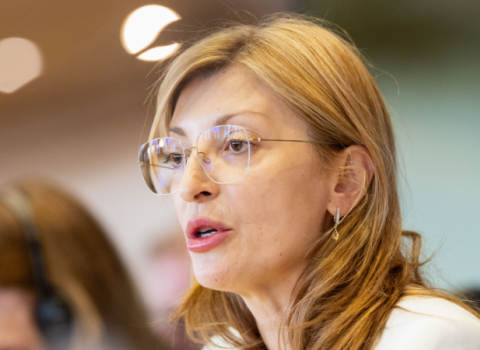The member states have reached agreement on their priorities. Now, work on the ‘tricky part’ – of implementing the seventeen policy issues that will underpin the single market for research - is about to begin at the ERA Forum

The European Research Area (ERA) Forum is about to enter its implementation phase, after mapping out priorities across twenty R&I policy actions proposed by the European Commission.
Since February, member states, associated countries and invited stakeholders from the Brussels’ R&I community have been assessing their capacities and have now come up with a final list of policy actions they will take forward. There will be some modifications, but almost all proposals are to be explored.
These range from academic freedom and open science, to boosting hydrogen research and ensuring data protection legislation is appropriate for the needs of research.
The debates are not new, with many of the topics mulled by the Brussels research policy bubble for a while now, as part of the recently revived 20-year push to create a single market for research. But the forum for discussion is new, bringing structure to talks and lobbying that have been happening behind closed doors for years.
Now, country representatives, universities, research organisations, funders, industry and the Commission are all at the table. “This brings transparency into the process, which until now happened behind a curtain,” one member of the forum told Science|Business.
To date, stakeholders are happy with progress, but are already eyeing the next phase. “The process has been very positive until now,” says Stephane Berghmans, director for research and innovation at the European University Association (EUA), which holds the seat representing 11 university associations in the forum. “At this point, we are looking forward to getting started with the implementation.”
Lidia Borrell-Damián, secretary general of Science Europe, an association of research funding and performing organisations, believes the next step will be the real test to member states’ commitment to taking the European research agenda forward. “I think it is a good sign of interest of member states in ERA policies, but now we need to see what the commitments are going to be in fact. That’s the tricky part,” Borrell says.
Policy priorities make the cut
Of the 20 policy discussions considered to be taken up by the forum, most will forward one way or another. For an action to go forward, at least 14 member states must sign up to the work. As a surprise to many, most actions got enough support.
Some work streams, such as academic freedom and boosting inclusivity of excellence around Europe, will be taken forward by smaller groups of countries. Others, often higher profile policy dialogues that have been pushed for a while, such as research careers and open science, involves as many as 25 member states.
Of the proposals that did not go through, numbers 18 and 19, were merged into one on monitoring the progress of ERA. Action 15, on building up national and regional ecosystems, was postponed. Action 17, to improve research management and the functioning of research organisations, hasn’t made the cut yet, but reportedly will in the coming weeks.
Insiders stress the number of countries that subscribed to each action is not a ranking of importance but rather capacity. Smaller member states in particular do not have the resources to focus on all policy areas. In certain cases, such as research management, ministries were reluctant to engage because this area of policy goes beyond their portfolios.
One disappointment was member states’ reluctance to sign up for action 20, which aimed to drive home the target to up EU investment in R&I to 3% of GDP by the end of the decade. Member states signed a non-binding pact to boost investment in 2020, but failure to get support for this action is a worrying sign to some that consecutive crises may derail the plans.
“Let’s face it, that is a disappointment. As I said to member states and the Commission, if you want a successful ERA, you will have to fund it,” said Berghmans, who stressed the importance not only of funding ERA, but R&I more broadly as the EU pushes for major societal and economic transformations that rely heavily on innovation.
Adrien Braem, senior policy officer at Science Europe, noted the failure to bring the topic to the forum does not mean it won’t be discussed elsewhere. “The push for more investment still remains,” he said. “There are a lot of reasons why member states didn’t commit to that one, but I didn’t hear anyone say that they don’t want to invest.”
Overall, Braem said, researchers and member states are on the same page. The mapping exercise “has been a complex process, because commitments are complex,” he said. “There were obviously small differences on some very specific actions, but overall there was a common thread.”
Now, with the mapping done, the forum has two and a half years to make progress, before an assessment at the end of 2024.
Forum in action
The forum for research policy has been in the works for a while. Borrell recalled being part of the first platform, later dissolved, where five stakeholders from the Brussels research community were present. In 2015, there were seven at the table. Now there are over 100 lobbyists involved in the efforts.
To accommodate all these interests and policy areas, the forum will adopt one of three different configurations, depending on the specific action, the nature of the policy debate and how mature it is. Research assessment reform, for example, already has a community set up around it, and the forum will only be concerned with monitoring.
In the first type of implementation, for actions such as open science, research infrastructures, and gender equality, among others, the forum will set up sub-groups made up of experts on each topic. The other mode of implementation will be workshops on topics such as creating copyright and data frameworks fit for research. The third type will be the regular forum configuration implementing policy actions, such as monitoring of ERA. And it will all be flexible. There will be talks between the different groups, and any country can hop onto a debate at any point.
The forum and the open structure for debate signals ‘structural change,’ with much more willingness to listen to stakeholders, Braem noted.
But the stakeholders should be sure to take advantage of it. Industry in particular, Breghmans says, could use its seat at the table more actively. “You have a seat within the ERA Forum. Please use it. We need you within ERA, European R&I needs you,” he said.
Editor’s note: This article has been updated on 20 October 2022. Action 15 in the policy agenda has not been scrapped. The Commission says the item will be discussed at a later stage.





 A unique international forum for public research organisations and companies to connect their external engagement with strategic interests around their R&D system.
A unique international forum for public research organisations and companies to connect their external engagement with strategic interests around their R&D system.